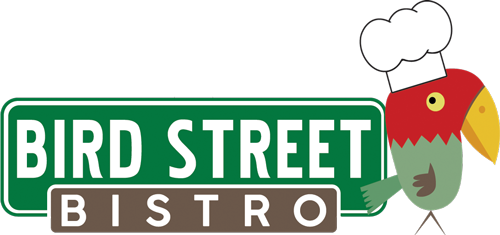Your Parrot and Hormones: 5 Ways to Help your Feathered Companion
Birds are wonderful companions, but when bird hormones fluctuate, it can make life difficult for both you and your feathered friend. Hormonal birds may engage in undesirable behaviors such as screaming, biting, feather plucking, nesting and regurgitating.
This can happen to many different species of birds, so if you notice your cockatoo, macaw, cockatiel, African grey or Amazon parrot exhibiting any unusual behaviors, they may be a result of hormones.
If you have had your bird evaluated by a vet, and no other issues were found, consider trying the five tips below to help curb the difficult behaviors that come along with bird hormones.
1. Play More
Birds that have an excess of pent-up sexual energy can often be destructive, aggressive or overly excitable. While these behaviors will eventually pass, it's common for the relationship between you and your bird to become a bit strained. This is a perfect time to engage in trick training with your companion. This allows you to help focus your bird's energy into something rewarding. It also provides a distraction from the frustration that comes with a surge in hormones. Parakeets and conures are particularly receptive to this behavior modification. Alternatively, you can also provide safe items for your bird to chew on, such as newspapers, wood chunks and bird-safe twigs. Chewing is a great way for birds to burn off energy.2. Provide the Right Nourishment
Believe it or not, altering the diet of your Amazon parrot, macaw or African grey can be an effective way to help soothe your hormonal bird. Parrot hormones, and bird hormones in general, often respond well to small changes in diet. One hormonal parrot diet tip is to eliminate pet bird food pellets to reduce soy consumption. Some breeders recommend a parrot diet that limits foods that are high in fat or sugar and focusing on good food for birds, such as fresh veggies. Wheat germ is another good food for birds that are struggling with hormones, and some people even have success with adding chickpeas and leafy greens to their bird's diet. If your bird prefers mash food, Bird Street Bistro offers several affordable pet bird food blends that include the right mixture of veggies, healthy grains, proteins and legumes to keep your bird healthy and happy.3. Decrease Light Exposure
Most bird owners understand that their companions need a certain amount of complete darkness every day. However, not all owners understand that light exposure can alter the hormonal profile of a bird, especially parakeets and conures. If birds are exposed to too much natural or artificial light, this signals to their brains that spring has arrived, which means that it's time to breed. To help curb the excess bird hormones, carefully monitor how much sunlight and bright artificial light your bird is exposed to. It may be helpful to increase the amount of time your bird spends in a dark, quiet space.4. Curb Nesting
One of the biggest telltale signs of hormonal behavior is nesting. Both male and female birds will exhibit territoriality and nesting behaviors when they believe it's breeding season. If your bird is suddenly spending a lot of time in dark corners, seeking high perches or becoming territorial over a certain item or place in the room, this is likely nesting behavior. It's important to nip this behavior in the bud because it encourages hormone stimulation. To minimize the likelihood of nesting, you can remove things like boxes, blankets and soft materials from the space. It also helps to frequently rotate the contents of both the room and the bird's cage to prevent territoriality.5. Pet Your Bird Properly
One of the best things you can do for your bird is to limit your petting and cuddling. For most birds, especially cockatoos and cockatiels, petting outside of a few areas is considered mating behavior and will encourage hormone production or exacerbate sexual frustration. When your bird is hormonal, it's often best to limit petting in general and instead focus on hands-off interactions. If you want to show your bird the appropriate type of affection, you should only pet the head, neck, and feet. In the wild, only a mate will touch or preen outside of these areas, so you don't want to give your bird the wrong signals. Parrot hormones are particularly sensitive to this, so you should do your best to be mindful of your companion's needs. Encouraging mate-like behavior can be frustrating to your bird and damage your long-term relationship.This Too Shall Pass
Just like with humans, the hormonal surges your avian friend is experiencing will ebb after a certain amount of time. Even if your bird has become a bit difficult, it's important to remain consistent with your interventions and to understand that all birds are unique in what triggers hormone production. At the end of the day, just remember that your bird isn't lonely or lacking affection. He or she is just experiencing a drive to mate, and it will pass. The data above is sourced from the following links: https://threebirdsandacloud.wordpress.com/2014/02/25/hormones-and-your-parrot-the-triggers-and-what-to-do/ http://www.pethealthnetwork.com/all-pet-health/bird-health-care/sex-and-single-parrot-insights-bewildered-bird-owners https://threebirdsandacloud.wordpress.com/2014/03/24/what-is-a-healthy-diet-for-my-bird/ https://threebirdsandacloud.wordpress.com/2014/01/18/on-helping-keep-our-pets-healthy/
african grey,
amazon parrot,
bird hormones,
cockatiel,
cockatoo,
conures,
good food for birds,
macaw,
parakeets,
parrot diet,
parrot hormones,
pet bird food
- Choosing a selection results in a full page refresh.
- Press the space key then arrow keys to make a selection.


